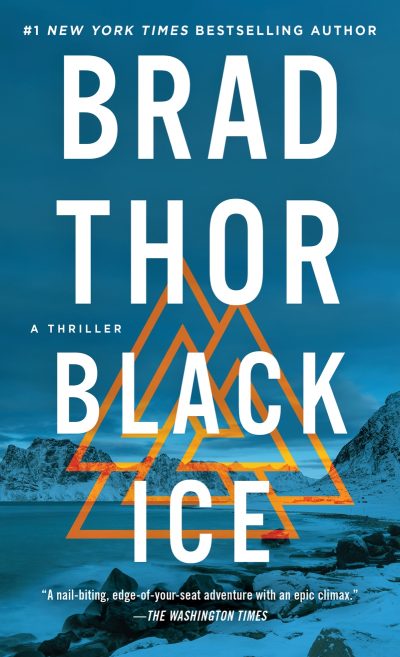Helicopters, it was said, didn’t fly – they merely beat the air into submission. But halfway between continental Norway and the North Pole, it felt as if the air were winning.
As sleet slammed against the exterior, another sixty-plus-mile-per-hour gust rocked the airframe. The rotors groaned in protest. There was only so much the helo could handle. They were pushing it beyond its limits.
Scot Harvath didn’t need to see the water to know the slate-gray ocean was roiling with whitecaps. This far above the Arctic Circle, where moisture from the south collided with icy, polar winds, massive depressions formed, unleashing nightmare weather.
If anything went wrong, there would be no rescue. No one back at the U.S. Embassy in Oslo, much less anyone at the White House, would acknowledge him, nor the mission he was on.
He glanced at the cracked face of his watch, blood crusted atop its bezel. Just a little farther, he thought to himself. We’re almost there.
Ignoring the pain in his ribs, he reached for his pack and opened it. Everything was still in place. Take care of your gear and your gear will take care of you. It was a mantra that had saved his life again and again.
Under his mountaineering jacket, he felt the cold press of metal against his skin. No one knew if the odd-shaped key, hanging from a piece of paracord, would even work – not after all this time.
If it didn’t, all of the danger, all of the risk, would be for nothing, and the consequences would be deadly. Failure, though, wasn’t an option.
That was the world he lived in. He wasn’t interested in easy tasks. In fact, he had always chosen the most difficult, the most perilous assignments.
It was how he was wired. No matter how bleak the scenario, he would never give up. Success was the only outcome he would entertain.
But as yet another gale-force blast of frigid air convulsed the helicopter, causing it to swing violently from side to side, he began to have his doubts.
Moments later, an alarm began shrieking from the cockpit, and Harvath knew they were in trouble.
The pilots, though, were able to regain control. The bird was still swaying, but nowhere near as badly as before. It looked like everything was going to be okay.
Then there was an ear-splitting crack. It sounded as if the helo had been hit by lightning. It was followed by the tail rotor completely shearing off. And as it did, the helicopter began to spiral.
They were going down.
CONTINUE READING THE BLACK ICE EXCERPT





















